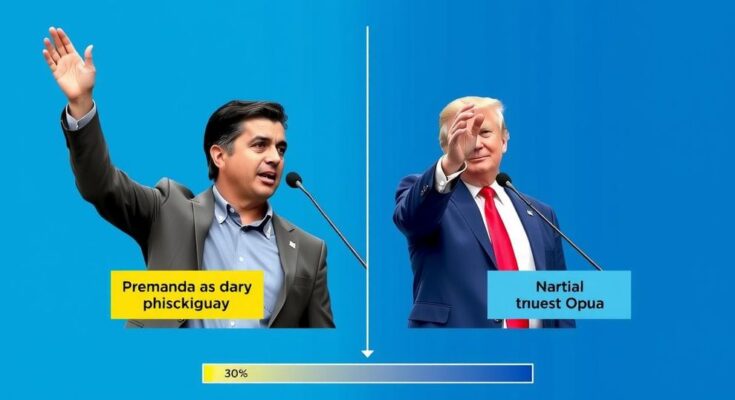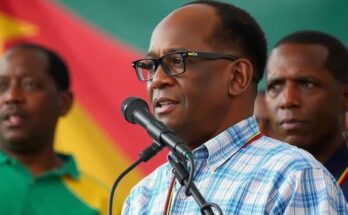Uruguay approaches a critical presidential runoff as Álvaro Delgado and Yamandú Orsi compete closely for the presidency after an indecisive first voting round. The highly contested election reveals deep voter ambivalence, fueled by lackluster campaigns and pressing issues such as crime and fiscal policy. Polls indicate an even split, with many voters still undecided.
Uruguay is set for a pivotal second round of voting on Sunday, as two candidates vie for the presidency following an inconclusive first round. The race has intensified between Álvaro Delgado of the National Party, which currently governs, and Yamandú Orsi of the Broad Front, a left-leaning coalition that previously held power. In the first round, the Broad Front secured 44 percent of the votes, while the National Party garnered 27 percent. However, support from other conservative parties, particularly the Colorado Party with its 20 percent share, has given Delgado a competitive advantage going into this final round.
The October elections resulted in a tied Congress, further complicating the dynamics. Recent polls suggest a nearly equal split between Delgado and Orsi, with a significant portion of the electorate—approximately 10 percent—still undecided. Analysts attribute this voter ambivalence to lackluster campaigns and a notable agreement on substantial issues, contributing to a sense of apathy among voters. Unlike shifts seen in other countries, such as the United States, voters in Uruguay appear less influenced by extreme ideological divides.
Crime rates have surged in Uruguay, a factor both candidates are addressing as they seek to connect with constituents regarding safety concerns. The competition has become a closely watched event, reflecting broader trends in Latin American politics, where voter dissatisfaction can lead to unpredictable electoral outcomes.
In recent elections, Uruguay has moved from a two-party system to a more diversified political landscape. The Broad Front governed from 2004 until 2019, during which time significant social progress was made, including the legalization of abortion and same-sex marriage. The 2019 election brought a shift to the center-right under President Luis Lacalle Pou, leading to the current electoral context, where competition between the National Party and leftist coalitions has intensified yet remains characterized by political consensus rather than populist movements. As the nation continues grappling with an uptick in violence, candidates are increasingly compelled to prioritize security within their campaigns.
The upcoming presidential runoff in Uruguay illustrates a highly competitive electoral environment, driven by voter indecision and a focus on societal issues such as security and fiscal policy. Both candidates must not only appeal to those who lean towards their respective parties but also secure the undecided voter’s support to emerge victorious. The outcome of this election will be crucial in determining Uruguay’s political future, particularly in light of the challenges presented by crime and economic stability. Overall, this election signifies a turning point, reflecting both the historical context of Uruguayan politics and the pressing concerns of its electorate.
Original Source: www.scmp.com



